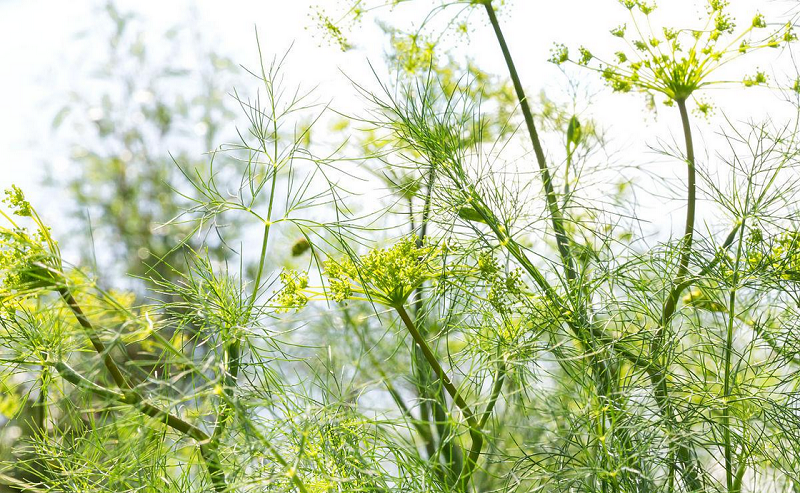
Fennel, with its delicate fronds and aromatic seeds, is a culinary delight that has been cherished for centuries. Beyond its culinary applications, fennel boasts a rich history steeped in medicinal folklore and traditional remedies. In this article, we delve into the fascinating world of fennel, exploring its diverse uses, nutritional benefits, and cultural significance.
Culinary Uses
Fennel is a versatile herb that adds a unique flavor profile to a variety of dishes. The bulb, stalks, leaves, and seeds of the fennel plant are all edible and prized for their distinct taste reminiscent of licorice and anise.
Fennel Bulb
The crisp, crunchy texture and mildly sweet flavor of the fennel bulb make it a popular ingredient in salads, slaws, and stir-fries. When roasted or grilled, the bulb caramelizes, intensifying its natural sweetness and adding depth to dishes.
Fennel Fronds
The feathery fronds of the fennel plant can be used as a garnish or chopped and added to salads, soups, and sauces for a subtle hint of flavor and a burst of freshness.
Fennel Seeds
Fennel seeds are a common spice used in cuisines around the world. They can be toasted and ground to enhance the flavor of curries, bread, sausages, and pickles. Additionally, fennel seeds are often chewed after meals to freshen breath and aid digestion.

Medicinal Benefits
In addition to its culinary allure, fennel has long been valued for its medicinal properties. Traditional healers and herbalists have used various parts of the fennel plant to alleviate a range of ailments.
Digestive Aid
Fennel is renowned for its ability to soothe digestive discomfort. The essential oils found in fennel seeds can help alleviate bloating, gas, and indigestion by relaxing the muscles of the gastrointestinal tract.
Anti-inflammatory
Fennel contains compounds with anti-inflammatory properties that may help reduce inflammation in the body. This makes it potentially beneficial for conditions such as arthritis and inflammatory bowel diseases.
Rich in Antioxidants
Fennel is packed with antioxidants, including flavonoids and phenolic compounds, which help neutralize harmful free radicals and protect cells from oxidative damage.
Cultural Significance
Fennel holds cultural significance in various parts of the world, where it is celebrated both for its culinary contributions and its symbolic importance.
Mediterranean Cuisine
Fennel is a staple in Mediterranean cooking, where it is used in everything from seafood dishes to desserts. Its aromatic flavor adds depth to traditional recipes like Italian sausage, Greek salads, and French ratatouille.
Folklore and Symbolism
In many cultures, fennel has been associated with myths, superstitions, and rituals. In ancient Greek mythology, fennel was believed to have magical properties and was associated with Dionysus, the god of wine and fertility.
The Application of Fennel in Traditional China
In traditional Chinese culture, fennel is widely used in both culinary and medicinal fields, with its application history dating back thousands of years. Here’s an simple introduction to the application of fennel in traditional Chinese culture:
- Fennel seeds are commonly used as a seasoning in cooking, imparting dishes with a unique aroma and flavor. In China, fennel seeds are often used in the preparation of meat, seafood, and vegetable dishes, especially in Sichuan and Northeastern cuisines.
- Fennel is also frequently added to hot pot bases to enhance the aroma of the broth and elevate the taste of ingredients.
- In traditional Chinese medicine, fennel is believed to aid digestion and relieve symptoms such as indigestion, bloating, and stomach pain. It can promote gastrointestinal motility and alleviate discomfort in the stomach.
- Fennel is also used as an herb to dispel wind and relieve pain, helping to alleviate discomfort caused by conditions such as arthritis and rheumatism.
- Fennel tea is a popular herbal beverage used in traditional Chinese medicine to improve digestion and alleviate stomach discomfort. It has a refreshing taste and soothing effect, making it suitable for consumption after meals.
In summary, fennel plays a significant role in traditional Chinese culture as both an important culinary seasoning and a medicinal herb. Its applications span across various fields including cuisine, medicine, and healthcare, offering rich assistance and choices for people’s lives and health.

Final Note
From its culinary versatility to its myriad health benefits, fennel continues to captivate and inspire. Whether enjoyed raw in a refreshing salad, simmered in a comforting soup, or brewed into a soothing tea, fennel adds a touch of magic to every dish it graces. Embrace the allure of fennel and explore the endless possibilities it offers in both the kitchen and the medicine cabinet.
